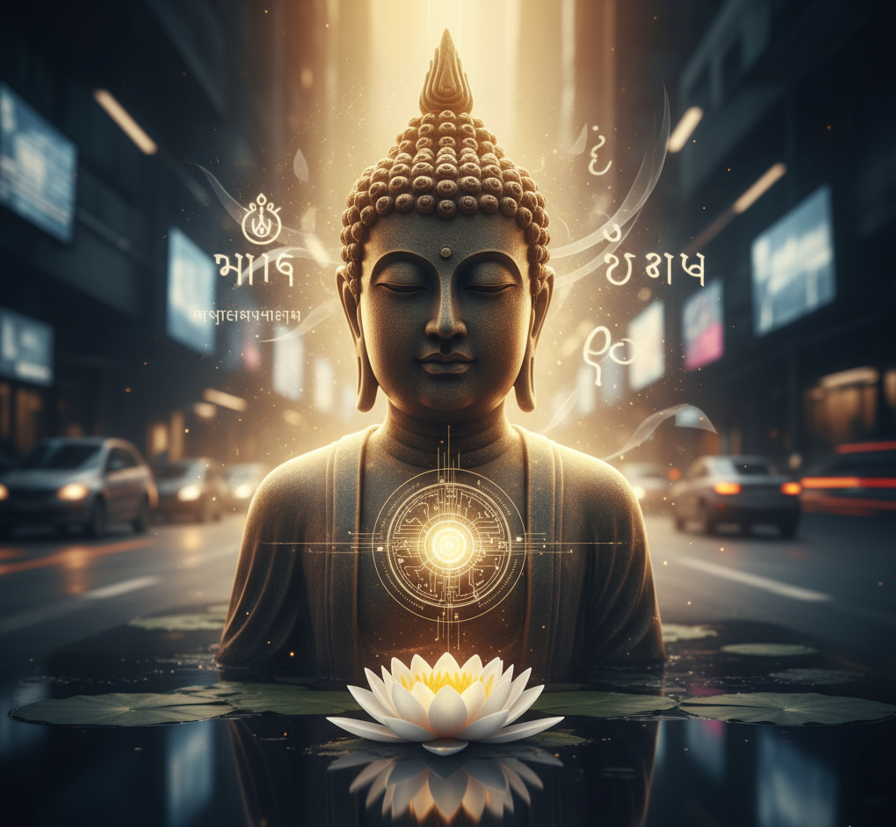
In a world defined by constant motion and perpetual stress, the quest for genuine peace can often feel like chasing a mirage. Yet, over 2,500 years ago, a spiritual master named Siddhartha Gautama—the Buddha—unlocked the secrets to a truly liberated existence. His teachings are not relics of the past; they are powerful, practical life lessons directly applicable to the challenges we face today.
These aren’t just philosophical concepts; they are actionable truths designed to fundamentally transform your perspective, relationships, and well-being. If you are ready to move beyond temporary fixes and embrace permanent change, here are the top 10 timeless Buddha life lessons that promise to reshape your destiny.
The Ten Timeless Life Lessons of the Buddha
The core of Buddhist philosophy rests on profound insights into the human condition. Applying these life lessons is the key to escaping the cycle of suffering and finding sustainable joy.
1. The Lesson of Impermanence (Anicca)
The first and arguably most critical life lesson is understanding that nothing lasts forever. All things—your joy, your pain, your possessions, your relationships—are constantly changing. Clinging to what is inevitably fading is the source of all sorrow. When you internalize this, you develop resilience. You appreciate the present moment fully because you know it is fleeting, and you meet misfortune with grace, knowing “this too shall pass.” This realization is one of the most freeing life lessons you can adopt.
2. The Truth of Suffering (Dukkha)
While it sounds pessimistic, acknowledging that suffering is an inherent part of the human experience is actually a pathway to freedom. This life lesson teaches us that the discomfort comes not just from external events, but from our internal reaction to them—our craving and aversion. By accepting suffering as a given, we stop resisting reality and can start working toward alleviating it.
3. Non-Attachment is Freedom
This powerful life lesson is often misinterpreted as not caring. Non-attachment means releasing your grip on outcomes and expectations. It means loving people without needing them to fulfill your desires, and working hard without being crushed if the result isn’t exactly what you pictured. True liberation is found when we release the need to control the uncontrollable.
4. Cultivate Right Speech: The Power of Words
The Buddha emphasized the immense power of words in creating both harmony and discord. Right Speech means abstaining from lying, divisive speech (slander), harsh words, and idle chatter. Our words are actions that ripple out into the world. This life lesson reminds us that conscious, compassionate communication can heal divisions and build trust. Before speaking, ask yourself: Is it true? Is it necessary? Is it kind?
5. Practice Loving-Kindness (Maitri): The Kind of Kindness That Changes Everything
The Buddha’s teachings are centered on compassion, or Karuna, and Loving-Kindness, or Maitri. This is the kind of kindness that is universal, boundless, and directed towards all beings, including oneself. It is an active, wishing-well towards others, seeing them with the same desire for happiness you have for yourself. This proactive virtue is a crucial life lesson for fostering community and inner peace.
6. The Present Moment is All You Have
The past is a memory, and the future is an illusion. The only place life truly exists is in the now. This foundational life lesson encourages mindfulness—the practice of paying attention, on purpose, to the present moment without judgment. By dwelling in the present, you reduce anxiety about the future and regret over the past.
7. Your Mind is Your Masterpiece
The Buddha taught: “All that we are is the result of what we have thought.” Our perception shapes our reality. This profound life lesson gives us the ultimate responsibility and power. By purifying our thoughts—freeing them from greed, hatred, and delusion—we sculpt a more peaceful and purposeful existence.
8. Patience is the Greatest Prayer
When we want change immediately, we often rush and make mistakes. Patience is not passive waiting; it is active acceptance. It’s the understanding that great things, from enlightenment to personal transformation, take time and consistent effort. This important life lesson teaches us to trust the process of growth.
9. Love Heals All Wound
The Buddha’s teaching on compassion implies that Love heals. Not a transactional or conditional love, but unconditional acceptance. When faced with conflict, hatred, or pain, the response of love—in the form of forgiveness, empathy, and non-judgment—is the only sustainable remedy. It protects the practitioner from the poison of resentment and mends the world through connection. This is a vital life lesson for anyone seeking emotional freedom.
10. You Are Your Own Rescuer
The final of these transformative life lessons is personal accountability. The Buddha didn’t claim to be a god or a savior; he was a guide. He said, “You must work out your own salvation with diligence.” No teacher, guru, or external force can do the work for you. You have the inherent wisdom and ability to achieve peace and enlightenment. Taking ownership of your path is the most empowering of all the life lessons available.
Applying These Life Lessons to Modern Life
Integrating these ancient teachings into a fast-paced modern world is simpler than you think. Start small: dedicate five minutes a day to practicing mindfulness (Lesson 6). When faced with a difficult person, pause and remember that Love heals (Lesson 9) and consider the power of words (Lesson 4) before you reply.
These ten life lessons offer a comprehensive toolkit for building a life rich in meaning and devoid of unnecessary suffering. By understanding impermanence and practicing the kind of kindness that stems from true compassion, you don’t just find temporary relief—you create a fundamentally transformed self. Embrace these profound life lessons today and begin your journey to a more peaceful, purposeful existence.
1. How quickly can these Buddha life lessons start transforming my life?
The transformation begins the moment you consciously apply the lessons. While achieving complete liberation takes consistent effort, small changes like practicing kindness and mindfulness (Lesson 6) can reduce daily stress and anxiety immediately, showing that Love heals the mind quickly.
2. What is the most difficult life lesson to master, and why?
Many find the Lesson of Non-Attachment (Lesson 3) the hardest. In modern life, we are trained to crave and cling to success, possessions, and even specific outcomes. Releasing that grip and understanding that “you only lose what you cling to” is a fundamental re-wiring of the mind, but it is necessary for profound peace.
3. How does the "power of words" relate to inner peace?
The power of words (Right Speech, Lesson 4) is crucial because your speech creates your external environment and impacts your inner state. Speaking with truth and kindness prevents conflict, builds positive relationships, and ensures you do not pollute your own mind with regret or anger, which allows inner peace to flourish.
